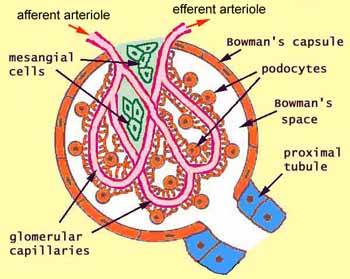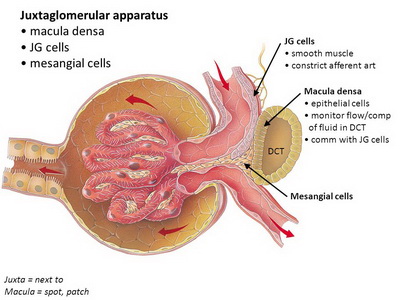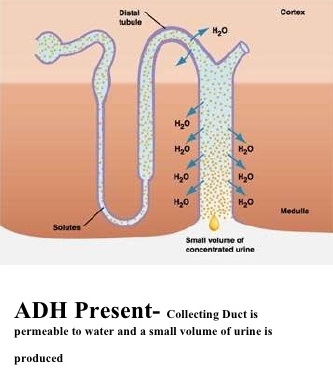Does the action of atrial natriuretic peptide (ANP) on mesangial cells change glomerular filtration rate? Does increased release of renin?
1 Answer
ANP increases glomerular filtration rate, but increased release of renin does not.
Explanation:
Effect of ANP
Atrial natriuretic peptide (ANP) relaxes the mesangial cells, which are located in the glomerulus of the nephron.

This increases pressure in the glomerular capillaries and thus increases the glomerular filtration rate (GFR).
Effect of renin
Renin is produced in the JG cells of the juxtaglomerular apparatus (juxta = next to).

(from slideplayer.com)
Renin stimulates the formation of angiotensin II (AII) in various tissues, which in turn stimulates the release of antidiuretic hormone (ADH) from the posterior pituitary.
ADH increases the water permeability of the distal convoluted tubule (DCT) and collecting duct in the nephron, thus increasing water reabsorption and excretion of more concentrated urine.

(adapted from www.slideshare.net)
Thus, both ANP and renin affect urine output, but by different mechanisms.
- ANP increases GFR, increasing urine output.
- Renin increases the water permeability of the DCT and the collecting duct, decreasing urine output.

